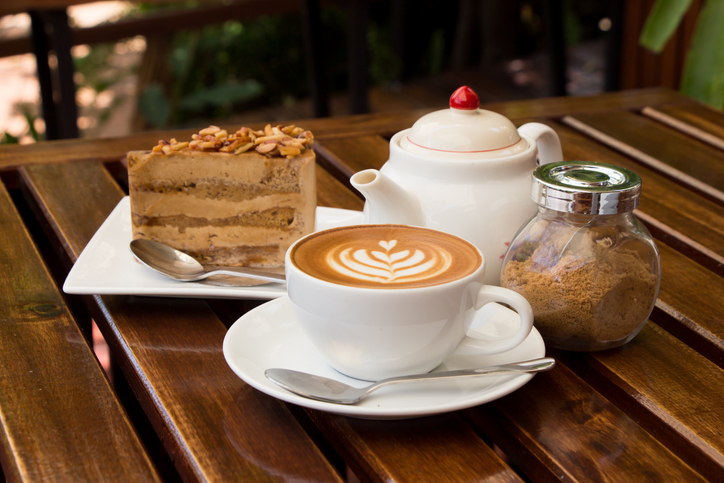Overactive Bladder? Avoid These Everyday Items
Menopause and stress incontinence, or a leaky or irritable bladder, seem to go together. But you could help yourself by looking at your diet.

Menopause unfortunately often brings unexpected – and unwanted – bladder issues.
Overactive bladder, sometimes known as urge incontinence, is a problem that results in a sudden urge to urinate and potentially incontinence as well.
There are a number of factors that are known to affect this condition and first is how much fluid you regularly drink, because obviously the more you drink the more you will have to urinate.
Smoking is a factor as well, as it irritates the bladder muscle, and the spasms caused by smoker’s cough can result in urine leakage.
What won’t help
It is possible for certain foods to worsen this condition, potentially irritating the bladder or the urinary tract and making symptoms worse.
Not everyone is affected in the same way and so it can vary from person to person with some being a problem for you but others have no effect. It means you are going to have to do some experimentation to see which are worst, or neutral.
Keeping a food diary is a really good idea to track which problem foods really affect you and all the following can make your symptoms worse.
1. Tomatoes are an acidic food that can potentially irritate the bladder and worsen your symptoms.
If you are particularly sensitive then it is not just the fruit you need to cut out but products such as sauces on pizza and pasta, ketchup and salsa.
2. Coffee and tea have the same effect because of their caffeine content which can increase bladder activity, and can make symptoms worse. The result can be more urgency and frequency, as well as increased incontinence.
Switch to low caffeine items such as green or herb tea and/or drink decaffeinated varieties. Do keep an eye on your symptoms as if you are very sensitive you may be better to cut out caffeine altogether for a while.
3. Chocolate is another caffeine source, with around a quarter of that found in a cup of coffee. If chocolate is a must then the no caffeine option is white chocolate or a really small amount of dark chocolate, with a high cocoa content, might satisfy the urge to indulge.
4. Citrus fruit including oranges, limes, lemons and grapefruit all contain high amounts of citric acid, which can worsen bladder control.
You may find some give you more trouble than others so go for less acidic fruit such as apples or bananas.
5. Carbonated drinks can cause you a problem as the carbonation can potentially aggravate your symptoms. That includes any carbonated item from water to soft drinks.
They often contain caffeine too – such as in colas or energy drinks – and that is a double problem.
6. Alcohol can irritate the bladder and affect the signals to the brain that make you aware of bladder overflow so you may not realise until too late that you have to go.
The worst combination is alcohol and carbonation so avoid sparkling wines and champagne.
7. Spicy foods You may love your curry, but the spices in them that stimulate your digestion can also irritate your bladder.
Be careful of spicy peppers and sauces, particularly spicy salsas, as they contain tomatoes, another potential irritant.
8. Artificial sweeteners also can irritate the bladder plus there is their potential for side effects such as migraines, change in vision, nausea and vomiting, insomnia and sleep problems, change in heart rate and depression.
So if ‘diet’ drinks feature heavily in your liquid intake then this could be the time to make a change. However, be aware that natural sweeteners can increase bladder symptoms as well so try to reduce your sugar intake from all sources.
9. Processed foods usually contain a cocktail of artificial ingredients including flavour additives, preservatives and chemical colourants and all these can irritate the bladder which will worsen your symptoms.
A diet of fresh foods, including vegetables and whole grains is the good alternative if you have an overactive bladder.
10. Onions when raw are the main problem and they can increase the urge to urinate so stick to cooked ones for the time being.
11. Cranberries are acidic and can potentially irritate the bladder and cause urge incontinence.
Cranberry juice may relieve symptoms of urinary tract infections, and many women find it effective for that.
12. Water intake is not as simple as you might think. You might believe your best strategy is to drink as little as possible to avoid having to go frequently to the toilet.
However, the reverse is true as not drinking enough will make your urine more concentrated and acidic, and that can cause an increased need to use the bathroom.
You also need sufficient fluid each day to avoid becoming constipated, so the key here is balance. Too much will mean more frequent urination, but around six 8-ounce glasses during the day is generally recommended.
Another common Menopause issue is having to get up at night to use the bathroom, so minimise this by not drinking late in the evening. A good night’s sleep is really important and getting up every few hours won’t help.
Helpful information:
Stress incontinence is common at menopause, and for some women it can be helped with oestrogen as well as progesterone so a combined cream like Wellsprings 20 to 1 with both hormones might be a solution.
So now you know what to avoid, but what could be helpful if you’re having bladder issues?
https://anna.blog.wellsprings-health.com/food-and-drink-to-help-an-overactive-bladder/


















